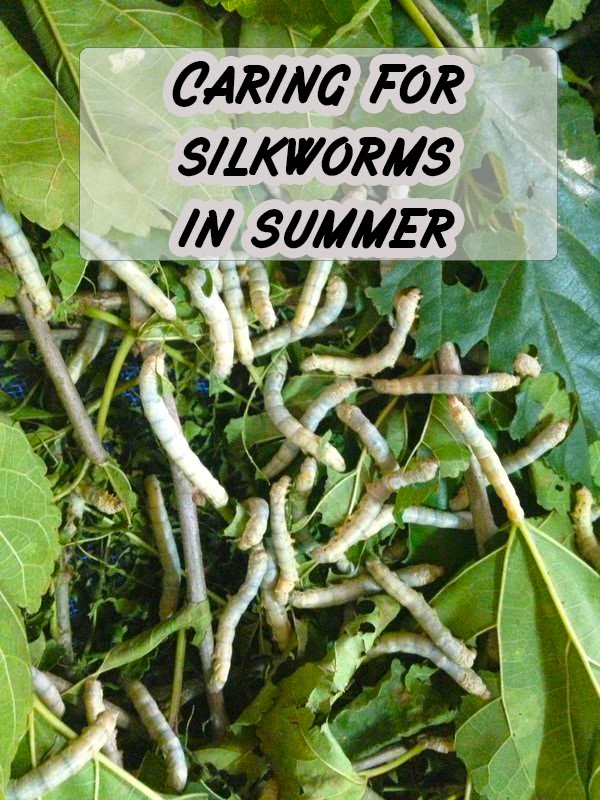 |
| Life Stages of Silk Worm |
Robust growth of silkworms and silk yield are directly influenced by the quality of mulberry leaves fed.
At the same time, climatic condition also plays an equal role as the silkworms are sensitive to the temperature and other abiotic factors.
Silkworms prefer cool climate with moderate humid condition. But in tropical zones, silk productivity is generally low in summer season mainly due to hike in temperature, fall of humidity and other factors like water scarcity, pests in mulberry garden and outbreak of diseases.
Adverse effects
Many farmers partially irrigate mulberry gardens in summer due to water scarcity which yields leaves with poor moisture content. Feeding such leaves results in adverse effect on growth of silkworms and their immunity. Therefore farmers often face crop failure in summer because of disease outbreak.
Earmark mulberry gardens for silkworm rearing according to the availability of water to ensure sufficient irrigation. The leftover gardens can be kept idle without pruning of plants till monsoon.
Drip irrigation helps save water. Black polythene mulching in mulberry garden conserves soil moisture for long time besides controlling weeds and enhances mulberry leaf yield and quality.
Dry and hot conditions result in fast evaporation of moisture from the leaves offered to the worms in the rearing bed and they dry before ingestion. Therefore the growth of worms and silk yield are affected.
Cool atmosphere
Grow trees around the rearing shed to avoid direct sunlight falling on the walls and to keep the atmosphere cool naturally.
Hang moistened gunny cloths around the rearing shed for flow of cool and humid air inside.
Summer encourages sucking pests like thrips, pink mealybug, papaya mealybug etc in mulberry garden which deteriorate the leaf quality. Spray strong jets of water to wash out the pests from the plants.
Release suitable predatory parasitoids in the affected garden according to the pest species. Avoid use of toxic chemicals.
(Dr. N.Sakthivel and Dr. Chikkanna are Scientists, Research Extension Center, Central Silk Board, Srivilliputtur – 626 125, Tamil Nadu & Regional Sericultural Research Station, Salem – 636 003, email: sakthivelcsb@hotmail.com, Mobile: 098427 61789.)

No comments:
Post a Comment